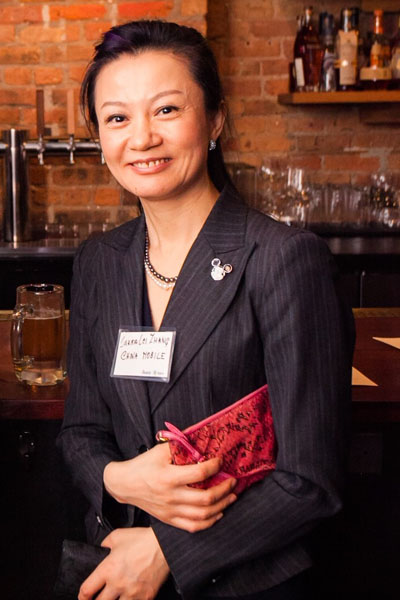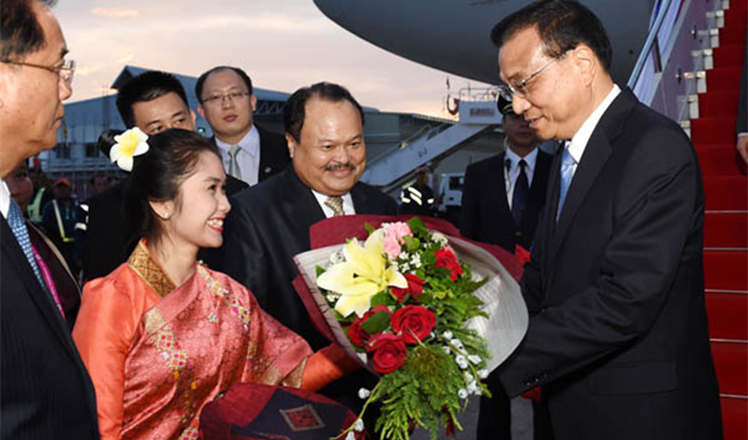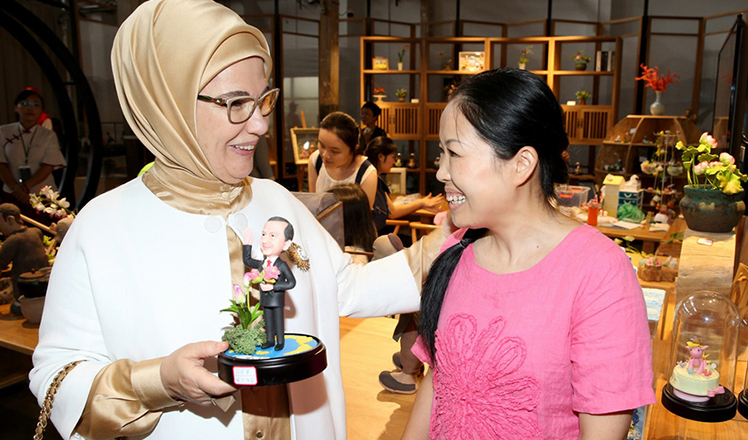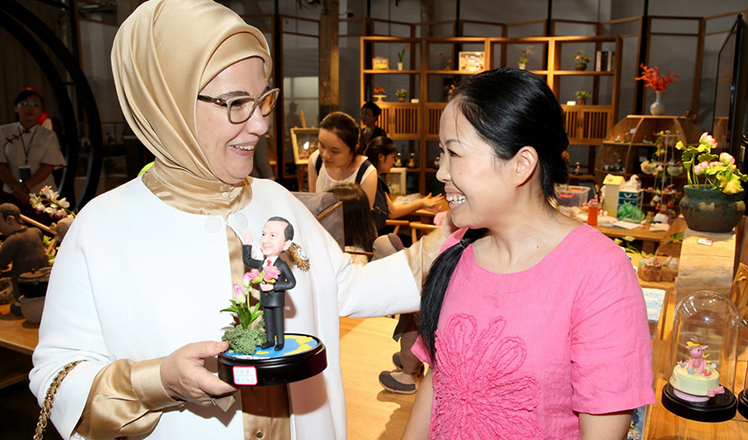Chinese women find their way through the glass ceiling
Updated: 2016-09-07 16:51
By SAMANTHA VADAS(China Daily UK)
|
||||||||
 |
|
Zhang Lei works as general manager of China Mobile International UK Ltd. [Photo/CHINA DAILY] |
Zhang Lei is no stranger to leadership. At 29, the Chinese businesswoman was appointed general manager of Infosto Group's Beijing office, a Finnish online platform for classified information exchanges.
Today, she leads a team of more than a dozen people as general manager of China Mobile International UK Ltd in London.
"I could have chosen to stay in China and have a stable life, but I wanted change and more responsibility," said Zhang.
She's one of a growing number of Chinese women breaking through the so-called glass ceiling-the invisible barrier between men and women in the workplace that prevents many from reaching top jobs.
Zhao Shuo, managing director of Fushi Group, was lured to Europe from her job in Shanghai.
"The driving force for me to go overseas was a colleague who had come from Australia to join our team and she made more money than us," Zhou said. "In 2001, Greenwich University gave me an offer to study for an MBA, and the motivation was to make money and go back to China."
Fast forward 11 years and Zhao now runs her own company in London, helping Chinese families to buy properties in the UK.
"Now, we have clients in Hong Kong, Singapore and the Middle East coming to invest in the UK," she said.
Despite women like Zhang and Zhao climbing the ladder, men still dominate corporate boards and CEO roles, according to the World Bank Group.
Statistics from Grant Thornton show only 24 percent of senior roles are held by women globally, while a third of businesses have no females in management positions.
"In the telecommunications industry, there are many males and few females," said Zhang. "I think it's still a man's world."
She arrived in London in 2007 and was one of five people to set up China Unicom's European office.
She was appointed head of China Mobile's UK office in 2013 and is now responsible for the company's UK operations, as well as the growth of businesses in Europe, the Middle East and Africa.
"A lot of women don't want this because their families won't support them, or encourage them to leave," Zhang says, highlighting a cultural hurdle experienced by a number of Chinese women.
Her husband, who works in satellite telecommunications in China, did not follow her to London, despite having been supportive of her career.
"It's my choice and my husband's choice," she says. "We're both happy in our jobs."
Having now spent nine years in London, Zhang says her job overseas has changed her views on work in many ways.
"My working style, the way we respect each other and the fact that there is no difference between the manager and junior staff, whereas in China they care more about hierarchy," she said.
According to Zhao, who also says she has many Western values, manager roles in China aren't perceived in the same way as they are in the UK.
"Inactivities that you attend outside of work in China, you need to have guanxi (personal relationships) to socialize with people and you need to drink (wine, beer or white spirits)-I don't think women can handle it."
Unlike Zhang, Zhao's family relocated to London from China.
The businesswoman, who has an 11-year-old daughter, says she likes the challenge of having to balance work and family life.
"Sometimes, you have to go to meetings and events after work and you will miss something, like homework, but it's not that significant," says Zhao.
Monique Villa, CEO of the Thomson Reuters Foundation, the charitable arm of the global news and information provider, says having a job and caring for family is very "doable", and men today are helping more than ever.
The French national, who has transformed the foundation through programs and training aimed at empowering people, particularly women, says the gender gap at work has narrowed considerably.
"For women like me who started working in the 70s as a journalist at Agence France-Presse, you had no women in responsible jobs," she says.
"One of the top leaders of one company came into my office and asked my deputy, who was a man, 'Is it difficult to work under a woman?'" she recalls. "It's a question you would never be able to ask today, but in the 90s it was a question you could ask without people being horrified."
Samantha Vadas is a freelance writer who contributed this to China Daily
- British parliament to debate second Brexit referendum petition
- Chinese women find their way through the glass ceiling
- Rousseff leaves presidential residence in salutation from supporters
- Thousands of Chinese rally in Paris to call for 'security for all'
- Xi tells Park China opposes deployment of THAAD in ROK
- Singapore confirms 27 new cases of Zika infection

 Street-straddling bus continues tests
Street-straddling bus continues tests
 British man falls for ancient Jiangxi village, buys property
British man falls for ancient Jiangxi village, buys property
 Post-90s property beauty's daily life
Post-90s property beauty's daily life
 Freshmen show dance skills during military training
Freshmen show dance skills during military training
 Premier to announce new initiatives while in Laos
Premier to announce new initiatives while in Laos
 First Ladies shopping in Hangzhou
First Ladies shopping in Hangzhou
 Flower children greet world leaders in Hangzhou
Flower children greet world leaders in Hangzhou
 World's largest transparent-domed bar under construction
World's largest transparent-domed bar under construction
Most Viewed
Editor's Picks

|

|

|

|

|

|
Today's Top News
Trump outlines anti-terror plan, proposing extreme vetting for immigrants
Phelps puts spotlight on cupping
US launches airstrikes against IS targets in Libya's Sirte
Ministry slams US-Korean THAAD deployment
Two police officers shot at protest in Dallas
Abe's blame game reveals his policies failing to get results
Ending wildlife trafficking must be policy priority in Asia
Effects of supply-side reform take time to be seen
US Weekly

|

|







